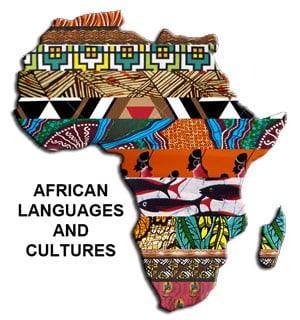
But writers like Chinua Achebe played a significant role in defining the black culture to the outside world. His novel Things Fall Apart discusses Black history, culture and traditions which have been long abandoned by the blacks themselves. He explains that though unsophisticated, uneducated and old-fashioned by European standards, African tribes believed in spirituality. They lived by traditional practices and rules that gave a certain form of order to their societies.
Reason for a Strong Belief in Spirits
Although a male-dominated society, women had a special status in the family, depending on their age and position. Sold to their suitors, they earned respect and merit after becoming mothers.
Achebe also cites the belief of blacks in voodoo and spells. He gives readers a justification for their strong belief in spirits and argues the power of those spirits. The African tribes had to battle the forces of nature every day for survival. This made them highly superstitious, and they fervently prayed and offered sacrifices to the spirits for plentiful harvests.
African history is full of long periods of drought, when people had nothing to eat or when their crops were ruined by too much rainfall. With no technology to battle the natural elements, the tribes’ only solace was in prayer and sacrifice.
A Rich Culture
Despite these troubles, the blacks have a rich history with many interesting traditions. Marriages and feasts were occasions when people were in a festive mood, temporarily forgetting their worries. Polygamy was common among the tribes with all the wives living together. Women paid great attention to their appearance, making heavy ornamental jewelry for themselves.
Achebe’s novel gives an insight into black history and traditions. He impresses upon his readers that blacks in Africa were not backward or ignorant but had a different lifestyle than ours. The hardworking among them thrived despite all the limitations they faced.
Their spirituality was natural, for they lived close to nature. In Root’s, Alex Haley portrays Africans as having a very strong sense of culture. They were steeped in tradition. They had rituals that celebrated the entrance of young men into manhood.
Their circumcision rite was painful, though not cruel. The young men were marched into the jungle, blindfolded. The elders then came to them and taught them useful practices such as meditation, plant and animal identification, etc. They told them ancient stories about heroes from their tribe, hunting practices and war exploits.
There are many myths about Africa as a continent that were proliferated in the 1950’s and ’60’s that have been communicated by Spanish, French and Portuguese translators who have worked in Africa. Some of these myths are evident from the series Tarzan, as well as some well-meaning wildlife programs. And though based on some fact, many of these stories were exaggerated well beyond the true picture.
Much of the culture and traditions of the people living in Africa followed them when slavery began to get a foothold in the Americas. Trinidad, for example, has long been thought to be the origin of voodoo, when, in fact, it was brought there when the black slaves came from Africa.
Modern African Culture
Black history plays a significant role in shaping the modern Africa as it is today. Names like Nelson Mandela and Desmond TuTu have also become a part of African black history because of their heroic struggles to gain rights. We hear of war, continuing between the descendants of ancient tribes such as the Hutu and Zulu.
Black culture isn’t now limited to the African continent and definitely cannot be limited to a few aspects, for it is diverse and vast as the continent itself from where it originated. Also African religion has evolved into something quite different from what it was in earlier days. Many areas have blended their own culture and language with their new-found religious following and reached a happy medium of old and new.
The people of Africa have also adapted to the changing times, thereby dispensing with many cultural myths and beliefs. Africa today enjoys a unique culture that is radically different from its origins.

I agree, african culture has greatly evolved since time in memorial, great article.